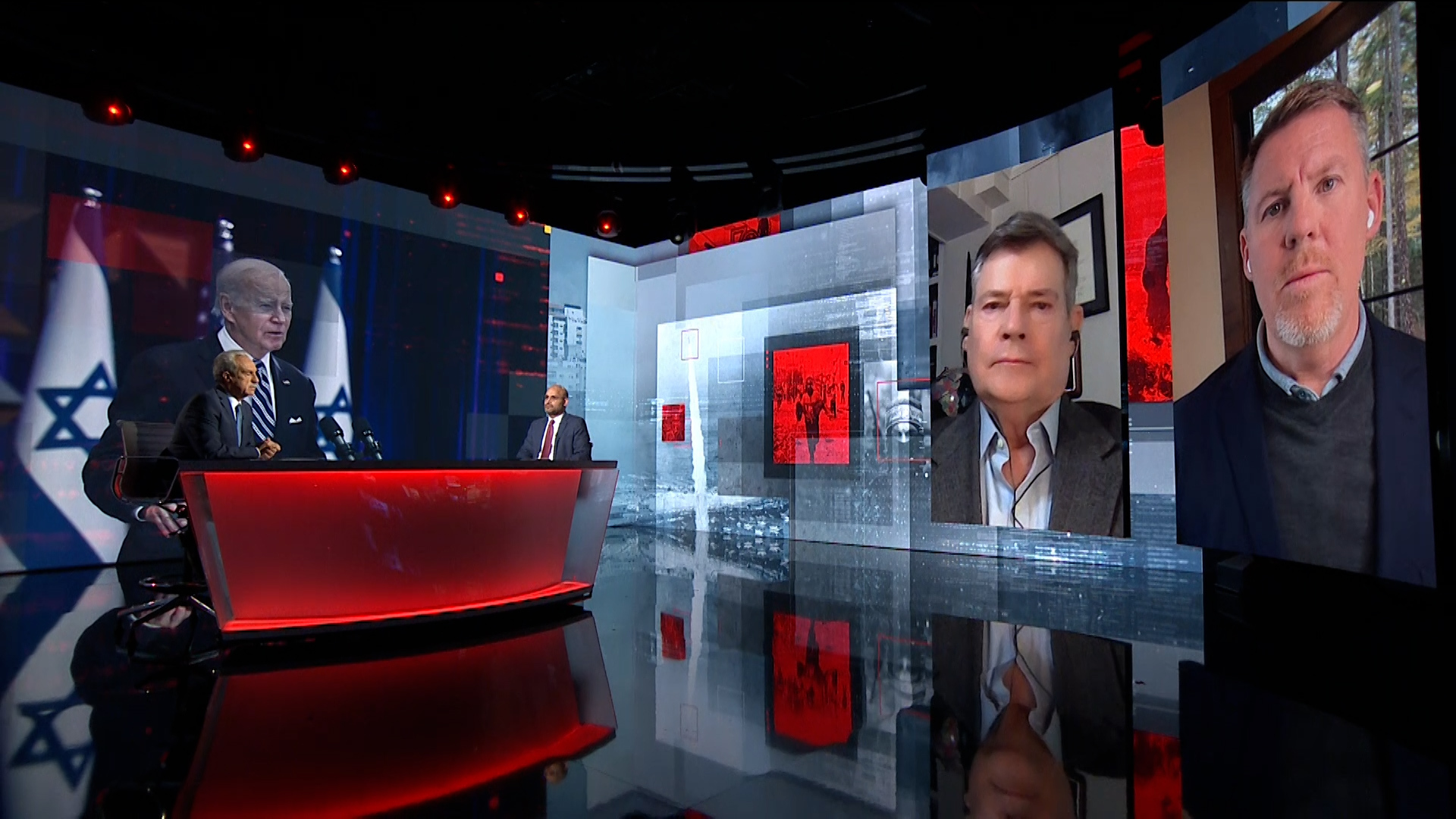Experts say US President Joe Biden's administration is not serious about establishing a humanitarian trucle in the Gaza Strip and is trying to buy time in Israel's favor, while others say Washington is trying to find a way to get aid in, release more detainees and vent growing global anger without compromising the goal of eliminating Hamas.
While the US administration recently floated the idea of establishing a humanitarian trucle to bring urgent aid into Gaza, Israeli Prime Minister Benjamin Netanyahu offered to implement "tactical pauses," in a new confirmation of Washington's inability to pressure Tel Aviv so far, according to Khalil al-Anani, a professor of political science and international relations.
Al-Anani confirmed – during his participation in the episode "Gaza ... What's more?" - The current war on Gaza has produced new terms that were unknown in the political dictionary, including Netanyahu's "tactical pauses", which mean stopping the war for sporadic and undetermined hours.
Therefore, what the United States is proposing "is nothing but an attempt to buy more time so that Tel Aviv can continue its war on Gaza on the one hand and face internal and external pressure on it on the other."
Washington – through these theses – is trying to cover up its inability to convince Netanyahu to stop the war, as evidenced by the fact that he bombed schools and hospitals while Blinken was in Tel Aviv, which means that the Biden administration is still kidnapped by the Israeli extreme right that does what it wants under American political and military cover, according to Al-Anani.
Objectives of the humanitarian truces
Commenting on the issue of humanitarian truces, Michael Mulroy, former US assistant secretary of defense for the Middle East, said that the Biden administration is trying - through these truces - to bring in aid and remove more foreigners and detainees, but at the same time "does not want a ceasefire before the elimination of Hamas, because it is something that Israel will not accept."
What Washington wants is to match Israel's goals with the way it tries to achieve them, giving more civilians an opportunity to leave the north for southern Gaza in search of security and potential aid.
On the contrary, Charles Dunn, a former U.S. diplomat in Israel and senior fellow at the Center for Middle East Studies, argues that it is more complicated than simply bringing in aid or releasing detainees, and that it concerns the long-term interests of each side.
Dunn believes that Israel is not interested in the issue of truces or cessation of hostilities, while the United States is increasingly concerned about the rising tone of American popular rejection of what is happening in Gaza.
In addition, the US administration, in Dan's opinion, is trying to contain the anger within the State Department over Washington's position on the war, as well as the growing global anger against what Israel is doing.
Despite this, Al-Anani says that the Biden administration, in its current state, will not be able to impose any proposal on Netanyahu, as evidenced by the fact that he began a ground operation hours before the implementation of a deal to exchange civilian detainees, and bombed ambulances carrying wounded on their way to the Rafah crossing based on an agreement that participated in the United States, which means that he exercises great disregard for this administration, as he put it.
But this is not the case, according to Mulroy, because international support for Israel has begun to decline after more than 10,<> civilians have been killed in Gaza, and the United States does not want to prolong the war despite the difficulty of achieving the goal.
Accordingly, Secretary of State Antony Blinken and Director of Central Intelligence William Burns are currently discussing with Israel and the region the post-war issue, according to Mulroy, who stressed that it will not be done quickly.
When will Washington stop fighting?
In this sense, Mullroy believes that the coming period will witness more violent confrontations on the ground, and the United States may provide Israel with bombs capable of reaching great depths in order to hit Hamas, in his view.
There is another disagreement about the nature of the truces that Washington wants and those proposed by Netanyahu, because Washington - as Dan says - wants an actual truce that provides the entry of aid and therefore must monitor what Netanyahu is doing, adding, "The United States should think about its interests and set conditions according to its interests and not according to what Netanyahu wants."
Therefore, Dan believes that some things may push the United States to change its position on Israel, including a major change in the fighting in a way that would cause a major disaster, adding, "Such a development may push Washington to stop fighting and resort to diplomacy, but we are not close to this point yet."
Regarding Washington's vision to stop the war, Anani said that Washington is not convinced of the realism of the goal of eliminating Hamas, but is betting on hunting senior leaders of the movement, especially military leader Yahya Sinwar, as a kind of victory for Netanyahu, and then perhaps moving towards stopping the war.
Dan said that no one knows the point at which the war can be stopped, not even Netanyahu himself, because the talk is about crushing Hamas once and taking back the detainees again, in addition to the fact that Israel does not have any plan for the future of Gaza or achieving security in it, which is a very big mistake, as he put it.

